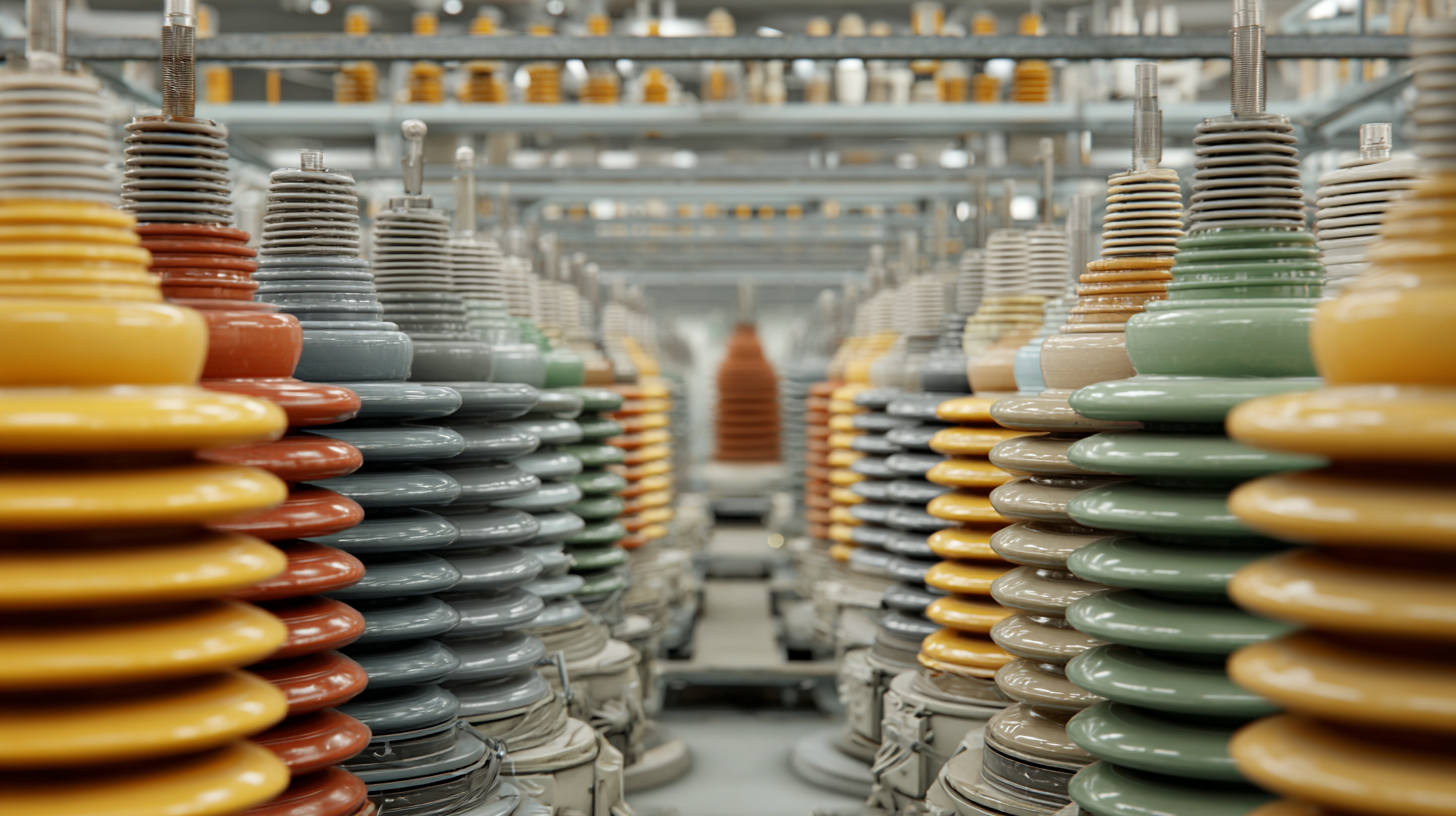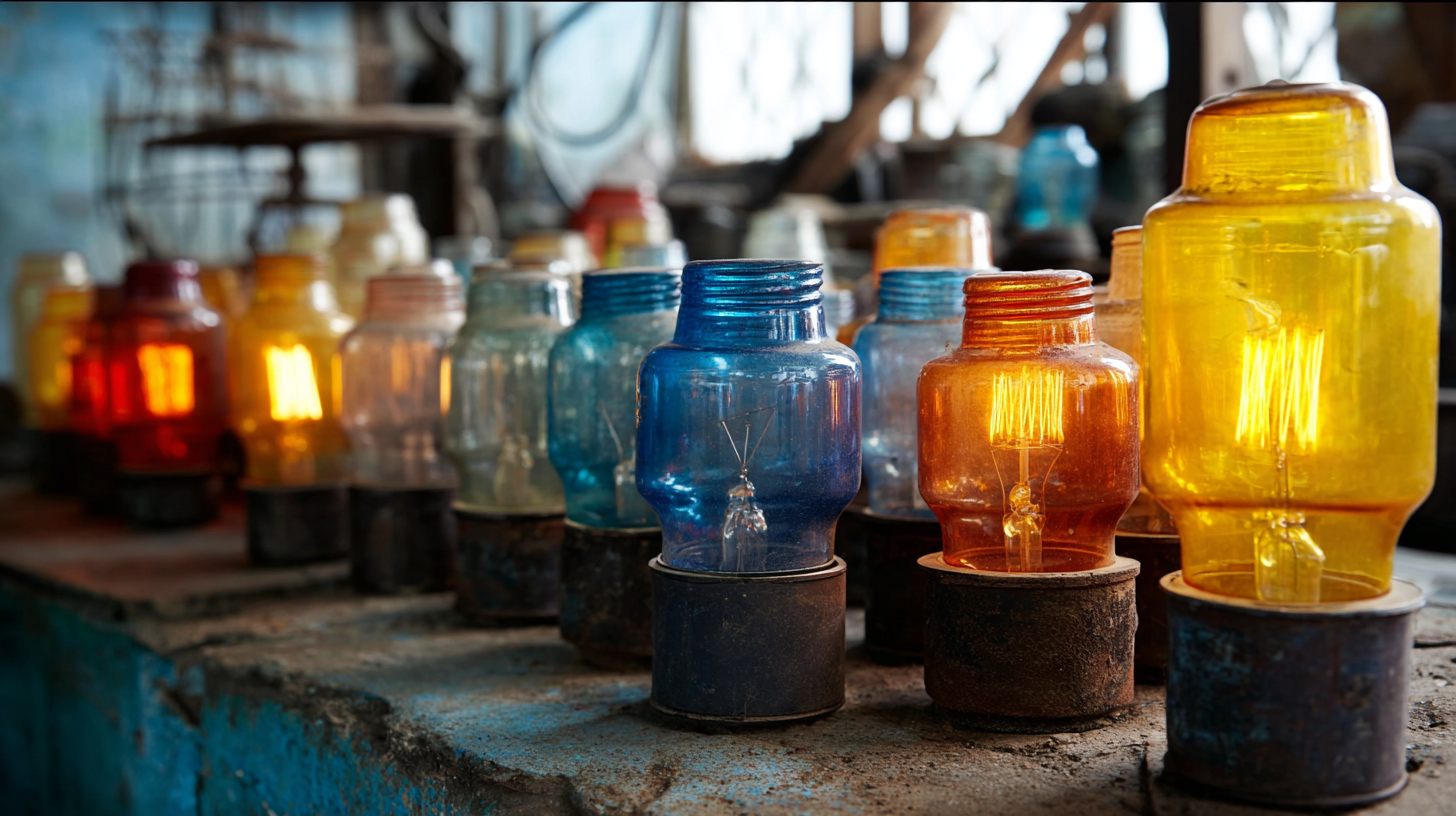Leave Your Message
In the quest for sustainable construction solutions, the demand for Eco Friendly Insulators has surged dramatically. According to a report by Market Research Future, the global market for eco-friendly insulation is expected to grow significantly, reaching a valuation of approximately $113.5 billion by 2025, propelled by legislative mandates for energy efficiency and an increased awareness of climate change. As industries move towards greener practices, it becomes essential for businesses to identify and partner with quality suppliers who prioritize sustainability. This guide aims to equip you with the necessary knowledge and strategies to effectively source the best eco-friendly insulators in today's sustainable market, ensuring both environmental responsibility and product integrity.

Eco-friendly insulators play a crucial role in sustainable construction by offering a range of characteristics that contribute to both energy efficiency and environmental conservation. These materials are often derived from renewable resources, such as cellulose, wool, or hemp, minimizing reliance on fossil fuels and reducing carbon footprints. Their natural properties allow for superior thermal performance, ensuring stable indoor temperatures while decreasing energy consumption for heating and cooling. Additionally, many eco-friendly insulators are designed to be non-toxic and biodegradable, which further enhances their appeal in creating healthier living environments.
The benefits of utilizing eco-friendly insulators extend beyond just environmental impact; they also promote better indoor air quality and comfort for occupants. Traditional insulation materials can release harmful volatile organic compounds (VOCs), whereas sustainable alternatives are generally safe and free from synthetic chemicals. Furthermore, these insulators often provide soundproofing properties, contributing to a quieter and more peaceful living space. By prioritizing eco-friendly options in construction projects, builders not only support sustainable practices but also meet the growing consumer demand for environmentally responsible buildings.
In the quest for sustainability, eco-friendly insulators have emerged as key players in reducing energy consumption and minimizing environmental impact. These insulators come in various forms, each suited to different application areas. For instance, natural fiber insulators such as sheep's wool and hemp are perfect for residential construction. Their high thermal performance and moisture-regulating properties make them ideal for homes seeking to maintain optimal indoor climates while reducing energy use.
Another notable type of eco-friendly insulator is cellulose insulation, derived from recycled paper products. This material is particularly effective in retrofitting older homes, as it can be blown into existing wall cavities, enhancing energy efficiency without the need for extensive renovation. Additionally, rigid foam boards made from sustainable materials, such as polystyrene or polyurethane, are often utilized in commercial buildings for their superior insulating properties and ability to reduce heat transfer. By understanding the diverse types of eco-friendly insulators and their specific applications, businesses and homeowners alike can make informed choices that align with sustainable practices and contribute to a greener future.
When it comes to sourcing eco-friendly insulation materials, identifying quality suppliers is crucial for ensuring sustainable practices and products. Start by researching suppliers who specialize in green products, focusing on those with certifications that validate their commitment to sustainability. Look for recognized eco-labels such as Energy Star or Green Seal, as these serve as credible indicators of quality and environmental responsibility.
Tip: Attend trade shows and industry conferences to network with suppliers. These events provide opportunities to engage directly with manufacturers, allowing you to ask questions about their material sources and manufacturing processes. Face-to-face interactions can help you gauge the supplier's knowledge and commitment to eco-friendly practices.
Additionally, verify the track record of potential suppliers by seeking out reviews and testimonials from other businesses. A reliable supplier should be able to provide references and case studies showcasing their experience with eco-friendly insulation projects. This due diligence can prevent future challenges and ensure that you are partnering with a supplier that aligns with your sustainability goals.
Tip: Create a checklist of criteria based on your sustainability objectives. This list should include factors such as sourcing materials, production methods, and life cycle assessments. Using this checklist during your supplier evaluation process can help you make informed choices that support both your business and environmental goals.

When choosing the right eco-friendly insulator for your project, several key considerations can guide you toward making the most informed decision. First and foremost, evaluate the material's sustainability credentials. Look for insulators made from recycled, renewable, or organic materials, as these contribute to lower impact on the environment and promote a healthier indoor atmosphere.
Tip: Research certifications, such as GREENGUARD or Energy Star, to ensure that the products meet stringent environmental standards. These certifications provide reassurance that the materials you choose not only perform well but also support sustainability goals.
Another critical factor is the insulation’s performance efficiency. Consider the R-value, which measures thermal resistance. Higher R-values indicate better insulation performance, reducing energy costs and minimizing reliance on non-renewable energy sources.
Tip: Compare different products and their performance ratings while factoring in your climate zone. Optimal insulation choices vary depending on local weather conditions and energy needs, so ensure that your selection aligns with the specific demands of your environment.

In recent years, the demand for eco-friendly insulation solutions has surged as consumers increasingly prioritize sustainability. One crucial aspect that guides this decision-making process is the presence of certifications. These labels serve as a beacon for both manufacturers and consumers, indicating a commitment to environmentally responsible practices. Certifications like ENERGY STAR, ISO 14001, and Greenguard not only provide reassurance about product performance but also reflect adherence to stringent environmental standards.
Moreover, certifications play a vital role in the transparency of the sourcing and production processes. They ensure that materials used in insulation products are not only effective but also derived from sustainable sources. For instance, products with organic or recycled content are often certified to provide assurance that they contribute positively to the environment. By prioritizing certified products, consumers can make informed choices that align with their sustainability values, fostering a healthier planet while still meeting their insulation needs.
